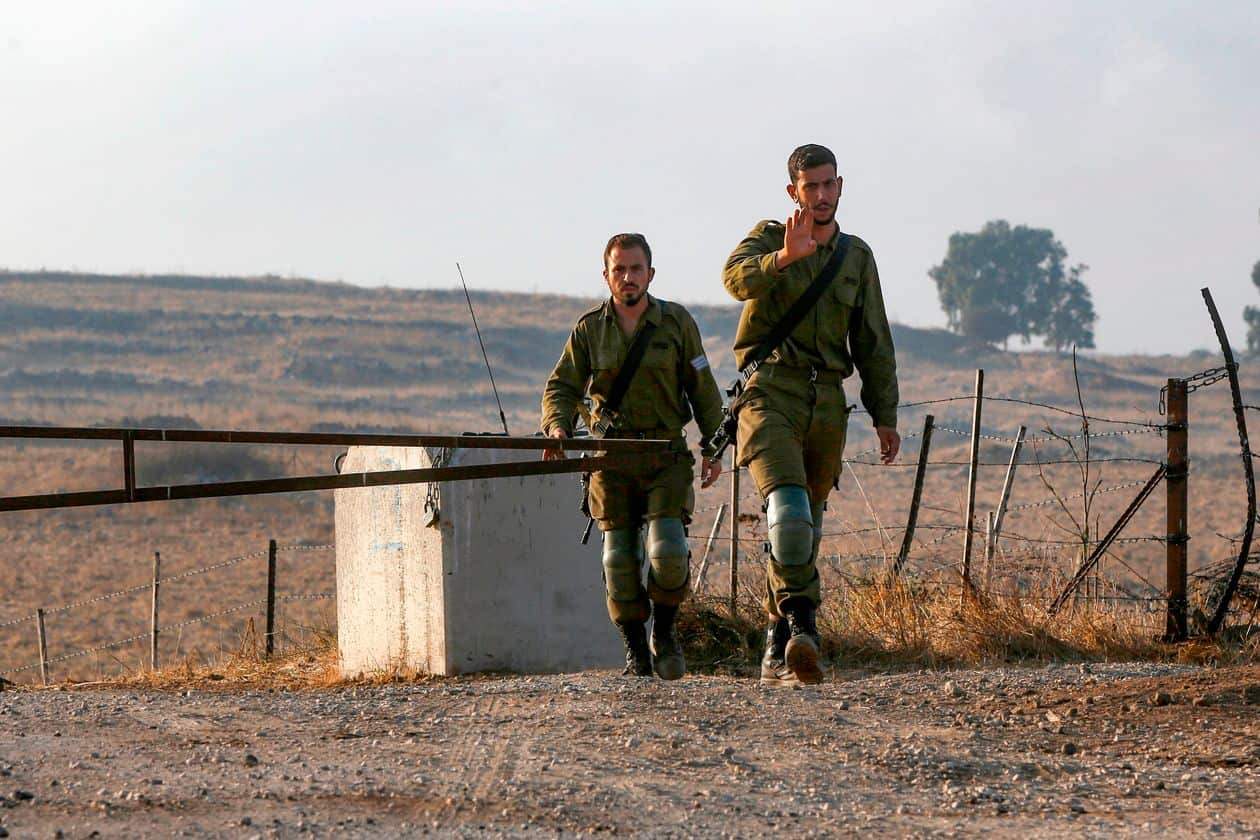Israel Strikes Syrian Military Sites After It Reported Foiling Border Attack

The Israeli military said its aircraft struck a number of targets in southern Syria belonging to the Syrian military on Monday in relation to a failed attack on Israeli territory a day earlier that was carried out near their shared border.
Israeli helicopters, jet fighters and drones struck Syrian observation posts, intelligence-collection systems, antiaircraft artillery facilities and command-and-control systems in Syrian army bases, the Israeli military said in a statement on Monday night.
Syria’s official state news outlet Sana said that Israel had fired rockets at its installations near the town of Quneitra on Monday night and that the fallout for the Syrian Armed Forces was limited to material damage.
Earlier, the Israeli military said that its troops late Sunday night fired at four people planting improvised explosive devices on the Syria-Israel border.
An Israeli special-forces unit thwarted plans for the apparent attack near the security fence that separates the Israel-controlled and Syria-controlled Golan Heights, Israeli military spokesman Jonathan Conricus said early Monday. The Israeli unit opened fire on the men, backed up by artillery and air support, Mr. Conricus said. The Israeli military estimated that all four men had been killed.
In a short video released by the Israeli military, four men can be seen walking across empty terrain near the fence, and later ducking before vanishing in a large explosion that came from overhead. Mr. Conricus said Israel doesn’t yet know the identity of the cell, but said it holds the Syrian government responsible for the clash.
The U.K.-based Syrian Observatory for Human Rights on Monday said its sources told it that the four men who attempted to plant explosives on the Israeli border likely belonged to the Syrian Resistance for the Liberation of the Golan—a group it says was founded by Samir Kuntar, a senior Hezbollah officer killed by Israel in 2016. However, the U.K.-based organization said it couldn’t independently verify the identity of the cell.
The former head of Israeli Military Intelligence, Amos Yadlin, said Monday he believed Hezbollah planned the attack as a revenge strike. “It seems [Hezbollah leader Hassan] Nasrallah tried his luck from the Syrian front,” Mr. Yadlin wrote on Twitter.
In March last year, the Israeli military said Hezbollah operative Ali Mussa Daqduq had set up a fresh terror network in the Golan Heights to launch attacks on Israel. At that time, Israeli officials said the cell was different from other Hezbollah units that had been fighting in Syria to help the government defeat opposition forces in the civil war. They said it was created specifically to strike at Israel.
Neither Hezbollah, which has been operating in Syria for years, nor the Syrian government has commented on the latest incident. It follows a series of clashes between Hezbollah, one of Iran’s key allies in the region, and the Israeli military.
Since a Hezbollah member was killed by an Israeli airstrike in Syria in mid-July, the Israeli military has maintained an increased presence on its northern border as it braced for retaliation. Israel has waged a yearslong air campaign aimed at what it says is Iran’s entrenchment in Syria.
Israel and Hezbollah—which have fought two full wars, most recently in 2006—have engaged in a series of skirmishes for more than a year as the Israeli military has widened its campaign to blunt the threat posed by the Lebanese group. Israel accuses Hezbollah of working to manufacture precision-guided missiles and build tunnels from Lebanon into northern Israel.
On July 27, the Israeli military said it had exchanged fire with an armed Hezbollah cell that crossed into Israeli-controlled territory from Lebanon. Israel said that none of its soldiers were injured and that the Hezbollah fighters fled back into Lebanon. Hezbollah denied that any incident took place, but vowed revenge for Israeli shelling in southern Lebanon.
“Hezbollah needs to know that it’s playing with fire,” Israeli Prime Minister Benjamin Netanyahu said following last week’s incident. “Any attack against us will be answered with great force.”
Photo: Israeli soldiers wave back traffic approaching its border with Syria. - PHOTO: JALAA MAREY/AGENCE FRANCE-PRESSE/GETTY IMAGES
Link: https://www.wsj.com/articles/israel-says-it-thwarted-attack-along-its-border-with-syria-11596454945




